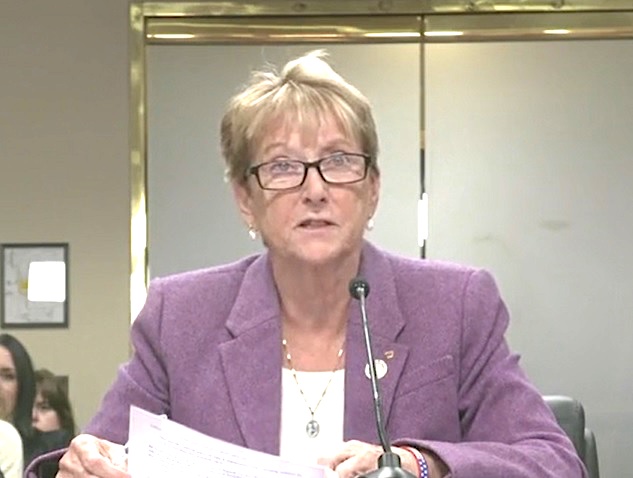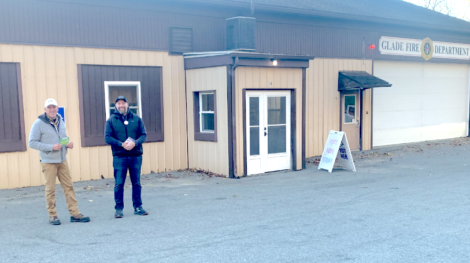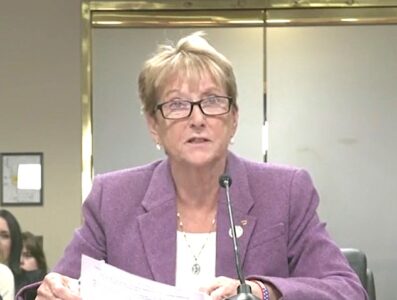Rural Health Care Grant Program clears senate committee

Rep. Kathy Rapp, R-Warren, is pictured speaking to members of the state Senate Institutional Sustainability and Innovation Committee last week. The committee approved House Bill 157, a Rapp-sponsored bill that would create the Rural Health Care Grant Program in Pennsylvania.
A rural health care grant program spearheaded by state Rep. Kathy Rapp is one step closer to becoming a reality.
The state Senate Institutional Sustainability and Innovation Committee recently unanimously approved House Bill 157, which would create the Rural Health Care Grant Program in Pennsylvania. The bill will now move to the full Senate for approval.
House Bill 157 will provide grant money, which will be determined through the budgetary process, to help pay for the education debt of practitioners who work for an entity located in a rural county or in a designated medically underserved area.
“House Bill 157 will provide grant money which will be determined through the budgetary process to help pay for the education debt of practitioners who work for an entity located in a rural county or in a designated medically underserved area,” Rapp said during the committee meeting. “This program differs from the current Primary Care Loan Repayment Program in several key aspects. House Bill 157 provides the grant money directly to the employer. Per the terms of the bill employers will have this grant money to offer as an incentive for practitioners to come work for them. House Bill 157 requires three years of service instead of two and House Bill 157 specifically targets nurses, midwives, dentists and dental hygienists.”
According to a recent survey from the Hospital and Healthsystem Association of Pennsylvania, 62 of Pennsylvania’s 67 counties are considered “full” or “partial” health professional shortage areas for primary care. In addition, nearly half of women in rural counties live more than 30 minutes from a birthing hospital, with at least 19 rural Pennsylvania hospitals transitioning away from providing obstetric care in the past two decades.
Rapp said she wrote the bill after the Rural Hospital Round Table meeting that took place in early 2024. Vacancy rates for nursing support staff and registered nurses at rural hospitals are 28% and 26%, respectively, compared to 19% and 14% statewide.
Rapp said only 6% of full-time dentists are practicing in rural areas while only 6% of the graduates from Pennsylvania-based dental schools practice in rural areas.
“We are in the midst of a nationwide health care workforce emergency,” Rapp said during the meeting. “The commonwealth currently does not have enough medical providers to meet Pennsylvania’s growing health care needs, leaving rural communities and underserved areas access to care in a perilous state. The more we can do to help bring providers to these areas the better off the commonwealth will be.”
If House Bill 157 is approved without any amendments by the Senate it will be sent to Gov. Josh Shapiro for approval.



